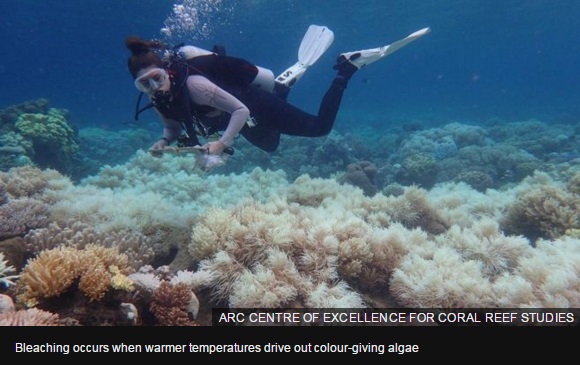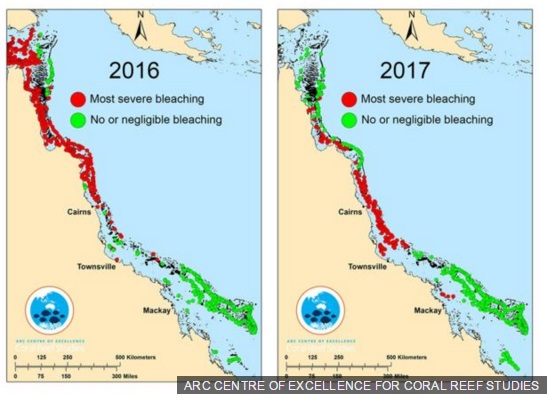
Unprecedented coral bleaching in consecutive years has damaged two-thirds of Australia's Great Barrier Reef, aerial surveys have shown.
The bleaching - or loss of algae - affects a 1,500km (900 miles) stretch of the reef, according to scientists.
The latest damage is concentrated in the middle section, whereas last year's bleaching hit mainly the north.
Experts fear the proximity of the two events will give damaged coral little chance to recover.
Prof Terry Hughes, from James Cook University, said governments must urgently address climate change to prevent further bleaching.
"Since 1998, we have seen four of these events and the gap between them has varied substantially, but this is the shortest gap we have seen," Prof Hughes told the BBC.

"The sooner we take action on global greenhouse gas emissions and transition away from fossil fuels to renewables, the better."
Almost 800 coral reefs across 8,000km were assessed by the Australian Research Council's Centre of Excellence for Coral Reef Studies.
The findings showed only the southern section was relatively unscathed.
Researcher Dr James Kerry said the damage was unprecedented.
"The central third this year, I would say, was as severe in terms of bleaching as what we saw as the northern third last year," he told the BBC.
"For those reefs that were hit two years in a row, it is effectively a double whammy. They have had no chance to recover from last year's events."

